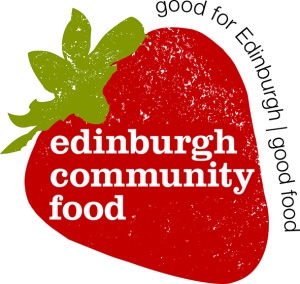Television chefs – good or bad?
Edinburgh Community Food debate the effect of the TV chef on ‘us mere mortals’.
Television chefs constantly enjoy telling us that cooking is easy and fun, with some trying to encourage us to cook with exotic ingredients, that we may have never heard of before and have complicated recipes which seem to take hours to cook. I study Food, Nutrition and Health at University and I am on a ten week placement with Edinburgh Community Food to see what work they do on a daily basis. The main thing I have learnt while on placement is that cooking can in fact be cheap, easy and fun while tasting delicious and simple recipes can be used time and time again with little changes here and there.
Television chefs encourage many of us into our kitchens which is ultimately a good a thing but lose us when the recipes seem more complicated and hard than they did on the television. The truth is a recipe never has to be followed word for word. Chefs seem to have a fancy name for normal day to day techniques for example Sauté usually means to fry and dicing is chopping, chefs also tend to know fancy names for mundane ingredients like a cornichon-it’s just a Gherkin. When on television they seem to live in an ideal world with an immaculately clean giant kitchen (the kind that you see on the adverts), freshly grown herbs and vegetables with free range chickens in the back garden. While working out in the community with colleagues from Edinburgh community food it’s clear to see that even the most basic of kitchens will still allow you to cook an enjoyable meal.
Herbs from a jar still season your dish and you can source your vegetables from the local supermarket. Television chefs aren’t bad but they tend to aim their dishes to culinary experts and not for us mere mortals. Their recipes can be simplified and additional ingredients can be missed out or changed which can make a dish taste better depending on personal taste. Techniques do not have to be as flamboyant as they appear on the television, the way you chop an onion will have no great effect on the finished product.
Cooking something fancy for family or friends? Excellent! But don’t tie yourself in knots about whether you have a heavy based saucepan or chef knives your equipment will be just fine. Using your own equipment means you’ll have cooked it in your own way and it will still be tasty. Steps within a recipe should be followed but not necessarily to time for example many recipes ask you to wait for the onion to soften before doing anything else, however, an onion will soften while it is cooking so if time is short then it isn’t a necessary step in creating the dish.
With so many cooking television shows now on our screens is this putting us off getting into our own kitchens? Are we worried about having to do everything as perfect as it appears on television? Cooking is a great skill to have as it can keep us eating healthily, can be an activity for the children to get involved with or can become a social event. There is also no greater feeling of accomplishment than seeing other people eat a meal that you have cooked and enjoying it with a massive smile on their face. Cooking can also be passed down through generations with children learning from their mothers keeping everyone in the family healthy which can help us all to curb the world phenomenon of obesity. Home cooking can also be tailor made to preferred tastes, can be cheaper than eating out or getting takeaways and you know exactly what’s in your food.
No two final dishes will be the same even if they follow the same recipe as everyone views measurements and techniques differently, so unfortunately no matter how hard you try to be the next big chef your dish won’t be the same, similar, but not the same. So get inspired by your favourite television chef and get into your kitchen and give cooking a go! Even the simplest recipes will show you that cooking IS easy and fun.
Oven Baked Salmon
Now that the weather is getting warmer why don’t you try something a little lighter! Salmon is a good source of Omega 3.
Ingredients
400g small new potatoes (washed)
1 tbsp olive oil
8 asparagus spears, trimmed and halved
2 handfuls cherry tomatoes
1 tbsp balsamic vinegar
2 salmon fillets
Method
1. Heat the oven to 170◦C.
2. Put the potatoes in an oven proof dish and pour over the oil.
3. Roast in the oven for 40 minutes.
4. Add the tomatoes and asparagus and return to the oven for 10 minutes.
5. Remove from the oven and stir making sure any crispy asparagus gets coated in oil. Add the salmon and drizzle over the balsamic vinegar.
6. Return to the oven for about 20 minutes, then serve.
Submitted by Katie Ditchfield
